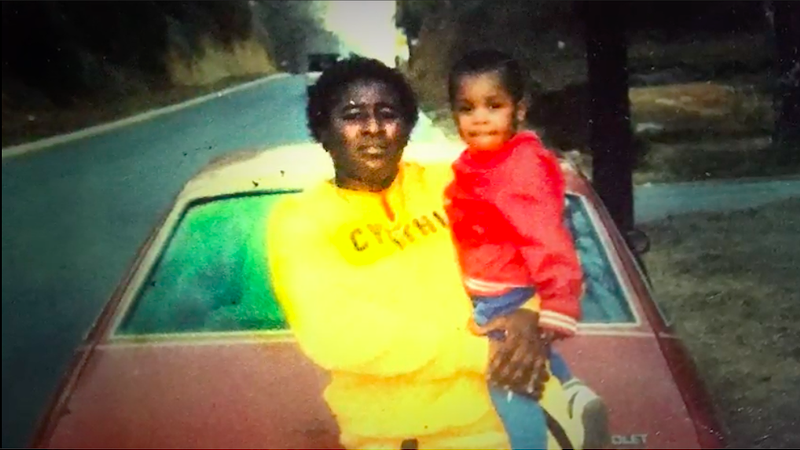Powell, who was 40 at the time, was also dealing with a worsening case of diabetes. To help alleviate the associated leg pain, she was prescribed Lorcet, a pill that contains hydrocodone.
That year, a friend began badgering her to share some of the pills. Unbeknownst to Powell, the friend was working as an undercover informant for the Sunrise Police Department. Powell refused at first, but she ultimately relented and sold the friend 35 pills for $300.
Her decision led to a 25-year prison sentence — the mandatory minimum at the time for trafficking 28 grams of hydrocodone.
"They basically railroaded her," Powell's daughter, Jacqueline Sharp, tells New Times. "It was a waste of taxpayer money. I see people who kill people — they don't give people time like that."
At Powell's sentencing, she pleaded with the judge to sentence her to house arrest so she could continue to help care for her daughter and grandchild, says Greg Newburn, the Florida chair of Families Against Mandatory Minimums. But the mandatory minimum meant the judge's hands were tied.
For Sharp, who was left to raise her three-year-old daughter by herself, the news of her mother's sentence was particularly difficult.
"I was shocked. Because I am the only child, it was devastating for me," Sharp says. "They have taken my mom, and she was all I had."
This summer, Powell's luck changed: More than 17 years into her sentence, her daughter received a call from the Innocence Project informing her that Powell, now 57 years old, was set to be released.
"[The attorney] said, 'You can go and pick her up,' and I just kept saying all the way to pick her up, 'This is not real,'" Sharp remembers. Powell walked out of prison on July 17.
As it turns out, the Innocence Project of Florida had been working with the Broward State Attorney's Office to recommend reduced prison sentences for 21 Broward defendants, including Powell, who were serving prison terms of 15, 25, and 30 years for drug-trafficking offenses related to prescription pills.
So far, the Broward State Attorney's Office is the only prosecutor's office in the state to have announced a review of such sentences.
"We thought it was a matter of fundamental fairness to initiate a review of those cases and reduce the sentences where appropriate," Chief Assistant State Attorney Jeff Marcus tells New Times. "The problem with these sentences was that it did not take much for pill cases to reach mandatory levels. So you can have a couple of bottles of prescription pills and be up to 15 years in prison, and that is just too much. We follow the law, but sometimes the laws have been too tough, as they were in the past. This is an opportunity to correct that."
In 2014, the Florida Legislature raised the threshold for hydrocodone trafficking and reduced the mandatory minimum for trafficking 28 grams of hydrocodone to three years. But because the statute was not applied retroactively, Powell was not immediately eligible for release.
After the statute was passed, Marcus was troubled that people convicted of the same offense today would not be treated the same as those in the past. So about a year and a half ago, he began working with the Innocence Project to make things right."We follow the law, but sometimes the laws have been too tough, as they were in the past. This is an opportunity to correct that." — Jeff Marcus, Broward County chief assistant state attorney
tweet this
"Although these former sentences are considered lawful sentences and remain lawful, they don't get the benefit of the new statute, so I felt there is a difference between what is lawful and what is equitable. I thought they should be treated the same," Marcus explains.
Prosecutors worked with the Innocence Project because they were not permitted to contact the defendants themselves. Through the Innocence Project's connections to different defense attorneys across the state, negotiations between the defendants and prosecutors came to fruition.
Newburn says Families Against Mandatory Minimums has been following Powell's story for years and has profiled her on the organization's website to show an example where the mandatory minimum was disproportionate and unjust.
"It was just so egregious," Newburn says. "It is a story that is so heartbreaking and the sort of story that makes you lose sleep. We used her story in the legislature to say, 'This person doesn't need to be incarcerated. This is why you need to make these laws retroactive so she can go home to her family.'"
Following the lead of New York, mandatory minimums first appeared on the books in Florida in 1979 to curb the cocaine wars in Miami. Newburn notes that the deterrence strategy didn't work, which led to the repeal of the law in 1993.
"The drugs kept coming, overdoses kept rising, and crime kept going up for more than a decade," Newburn says.
Then, in 1999, the legislature decided to restore many of the mandatory minimums for drug trafficking — a move Newburn says was unjustified and only made the situation worse.
"Drug-overdose rates have gone up by over 250 percent since then," he says. "No one who opposes mandatory-minimum reform has ever made any argument as to how they work or cited any benefit of these laws. Yet somehow they remain on the books even though they send people like Cynthia Powell to prison for 25 years."
Though mandatory minimums for drug trafficking were ostensibly designed to tackle major players in the drug trade, many of those who face harsh penalties are first-time offenders. According to a 2012 Florida Office of Program Analysis and Government Accountability report, 74 percent of those incarcerated for drug trafficking at the time had never been to prison before, and 61 percent were at low risk to re-offend. Yet, the James Madison Institute concluded that Florida taxpayers were paying around $100 million for those incarcerated as a result.
Newburn says the rhetoric concerning traffickers was misleading.
"'This is for the major traffickers': That is how they sold it," he says. "Then you fast-forward, you realize they are locking up small-time people who are addicted to drugs or selling a small number of controlled substances to make ends meet and locking them up for decades by the thousands, especially when it comes to opioids."
Although he has worked to reduce sentences for some individuals, Marcus, the Broward prosecutor, says that in some cases, mandatory minimums are appropriate to allow for uniformity in sentencing.
"One of the reasons that mandatory [minimums] were instituted is because judges were not uniform," Marcus says. "Some judges could give probation and others could give up to 30 years in prison, and so maybe neither of those were appropriate sentences."
Newburn says he hopes other State Attorney's Offices in Florida follow Broward County's lead, and, more importantly, that the state legislature considers repealing mandatory minimums or adding a safety valve that would allow judges to deviate from the minimum sentence depending on the circumstance.
In March, House Bill 339 was introduced to the Florida Legislature to revise the minimum and maximum quantities for certain trafficking offenses, adding a safety valve and calling for resentencing certain individuals. But the bill died in committee.
After announcing that 21 individuals would have their sentences reduced earlier this summer, two other cases were brought to the attention of Broward prosecutors, bringing the total to 23 people who have now received reduced sentences. Out of the 23, 18 have been released, two are waiting to be released, and three have a bit more time to serve. Marcus tells New Times the office welcomes the opportunity to examine any additional cases that are brought to its attention.












